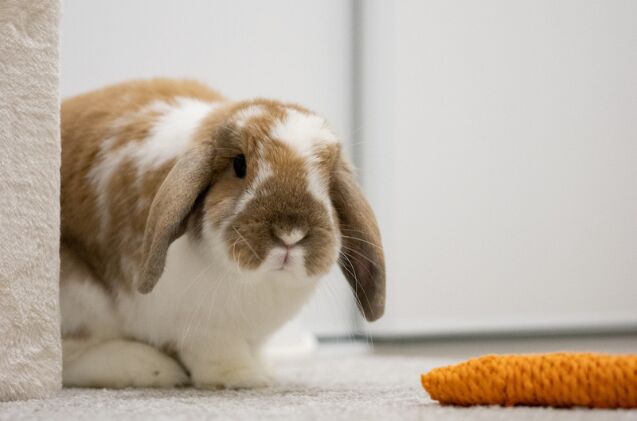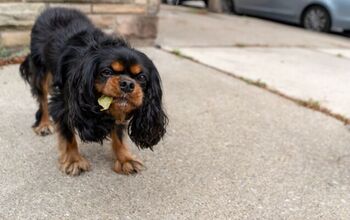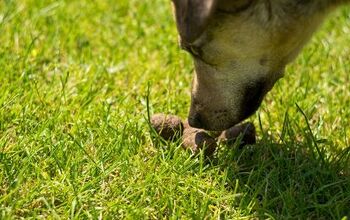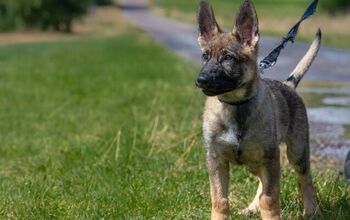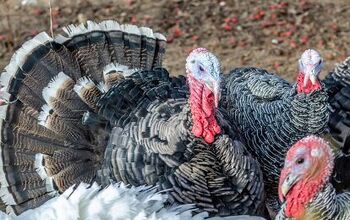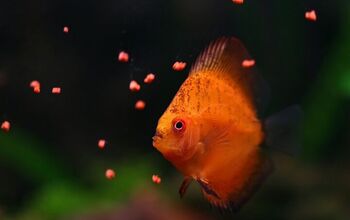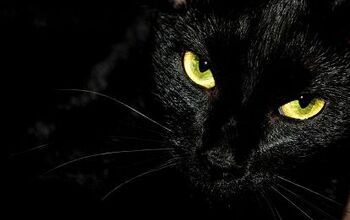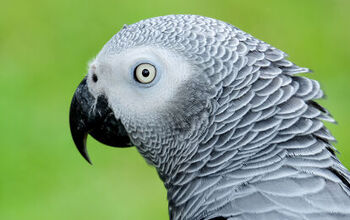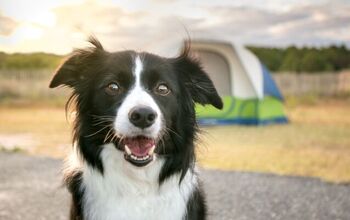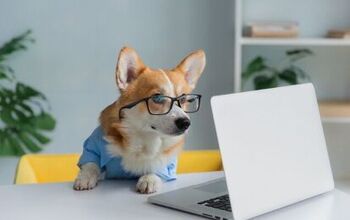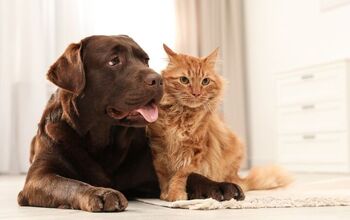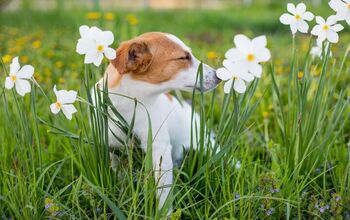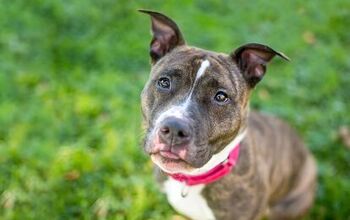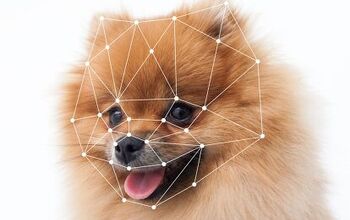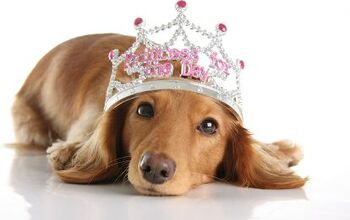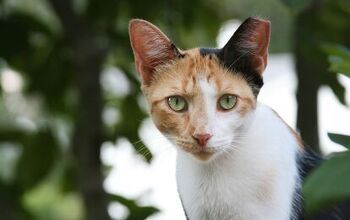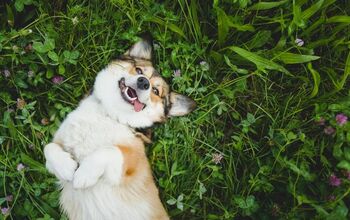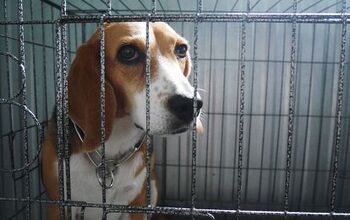Why is My Rabbit Eating Poop and How Do I Stop It?

It’s a weird and uncomfortable habit, but if your rabbit is eating poop, it may not be a sign of health issues! In fact, for rabbits, eating poop may actually be a healthy decision (even if we’d prefer not to see it).
In this article, we’re diving into the mystery of why rabbits eat poop, including why you may want to let your rabbit engage in this “cringey” habit. Plus, we’ll look at the warning signs that something is, indeed, off and when you should contact your veterinarian.
Let’s get started…
Is it Normal for a Rabbit to Eat Their Poop?
Obviously, seeing your rabbit eating their own feces isn’t something any rabbit parent enjoys. If this is your first time seeing your rabbit engaging in this behavior, it may even cause serious concerns. What could possibly be so wrong with your rabbit’s system that they would feel tempted to do that?
You may be surprised to learn that this is incredibly common and, in many cases, a regular part of their digestive process. By eating a specific type of poop, they ensure that they are getting (and keeping) all the nutrients that they need to support a healthy, happy life. The idea of chowing down on our own waste is disgusting to us. But for our furry friends, this is a normal part of their daily routine.
Rabbit Poop vs Cecotropes
To better understand the connection between poop eating and your rabbit’s health, we need to learn about the different types of rabbit waste. More specifically, we need to know about cecotropes. When we go to the bathroom, we have one type of solid waste – a material we couldn’t imagine getting near, let alone making into a meal. Rabbits, however, pass two different types of droppings.
The first is fecal waste or poop. If your rabbit has a healthy, functioning digestive system, these will be small, round, dry, ball-like pellets that are light brown. This is often found in your rabbit’s litter box (if they are litter-trained) or the bottom of their cage.
The second and the most important type of droppings are cecal pellets or cecotropes. These have the appearance of a small bunch of grapes with several round pellets clumped together. They are shiny, coated in mucus, and usually dark brown/mulberry color. The mucus is sticky, which could cause the cecotropes to pick up a layer of hay, wood shavings, or fur from their environment.
While feces is the body’s way of discarding everything your body doesn’t need from your food, aka the ‘waste,’ cecotropes are a little different. These pellets contain partially digested foods that passed through your rabbit’s system without the nutrients being absorbed the first time. They are packed with nutrients as well as helpful bacteria and fungi that support a healthy gastrointestinal system.
When you see a rabbit eating their waste, they are usually eating these cecotropes. This allows them to absorb the much-needed nutrients that would otherwise be lost.
Why Does My Rabbit Eat Their Poop?
Okay, so eating cecotropes is not only normal but also a healthy habit. But what if, upon closer examination, your rabbit is actually eating feces?
There are some cases where a rabbit may be seen eating fecal waste. This can be a sign of either physical or behavioral issues. The first step is to reach out to your veterinarian. Ideally, this should be a veterinarian with experience working with small animals, as they have some unique medical needs that not all vets regularly see in their practice. Explain your concerns. They may run some tests to better assess your rabbit’s current health and determine whether there is a medical explanation.
If your vet has ruled out all physical causes, it’s time to consider potential behavioral causes. For some rabbits, this is simply a bad habit – meaning there is no actual reason for the behaviour; they just enjoy it. In this case, the best thing you can do is to stay on top of cleaning their cage and/or litterbox. By cleaning more frequently, you are taking away the temptation.
Tips to Optimize Your Rabbit’s Digestive Health
Now that we understand the role that “poop eating” (cecotropes eating) plays in your rabbit’s overall health, you can apply this information to your regular routine to keep your rabbit feeling happy and healthy. Here are a few simple steps you can take to prioritize their digestive health…
Feed a Balanced Diet
This probably goes without saying, but feeding a balanced diet is one of the best things any pet parent can do for their pet, regardless of their age, size, or species. Many great high-quality pellets are available for your rabbit, but that alone isn’t enough to meet their dietary needs. They should also be provided fresh fruits and vegetables, especially green, leafy vegetables, and plenty of grass hay, like timothy hay.
Failing to provide everything your rabbit needs nutritionally can result in a long list of health problems, including chronic diarrhea, obesity, nutritional deficiencies, and the development of heart, liver, or kidney disease.
Contact your local small animal vet if you’re unsure about the proper portion sizes or if your rabbit’s current diet is appropriate for their size, age, and lifestyle. They will help you formulate a diet that fully satisfies your rabbit’s needs and sets them up for a long, healthy life.
Keep Your Rabbit Well Hydrated
Dehydration can trigger many digestive problems in your rabbit. This means that the easy solution is to encourage proper hydration. Try offering a variety of different water options to find what your rabbit prefers most. Some rabbits prefer a water bottle, while others would rather drink from a dish. You can also experiment with different materials, like a plastic water dish versus a stainless-steel water dish. When you identify your rabbit’s preferences, lean into them and use them to encourage better hydration.
Monitor Their Poop
Okay, that sounds funny. Who wants to monitor their pet’s poop? But your rabbit’s waste can tell you a lot about their health. When cleaning their cage or litterbox, pay attention to what has been left behind. You should see light brown, dry fecal pellets. If there are none, this could be a sign your rabbit is either constipated or eating them.
Additionally, take note if there are any cecotropes left behind. This could indicate that your rabbit isn’t eating them like they should. This would mean that they aren’t getting the necessary nutrients, bacteria, and fungi that they contain, which could lead to serious health complications if it continues.
Maintain a Healthy Body Weight
You have likely heard that we are experiencing an obesity crisis, but humans aren’t the only ones facing that struggle in our society! Veterinarians report that many pets are also packing on extra pounds, which can trigger or worsen any existing health problems they are facing.
In addition to contributing to conditions like arthritis, diabetes, and heart disease, obesity can also prevent your rabbit from being able to reach to eat their cecotropes. Returning to the previous point, this can lead to long-term health complications due to digestive issues or nutritional deficiencies.
Do you have a rabbit that is looking a little pleasantly plump? Talk to your veterinarian to make a weight loss plan. This may include not only making changes to your rabbit’s diet but also encouraging more physical activity. If you have a rabbit that likes to lounge all day, it’s time to start experimenting with different enrichment toys and activities to discover what works best to get them moving!
Get Your Rabbit Moving
Speaking of physical activity, did you know that encouraging your rabbit to be more active could have a positive impact on their digestive performance? Physical activity helps to get the blood flowing and, as a result, helps to boost many of the body systems, including the digestive system.
Prioritize Dental Health
While we’re talking about digestive health, one piece of the puzzle is often overlooked – your rabbit’s teeth! If they are experiencing tooth pain or problems, it can prevent them from being able to eat as they would normally. Obviously, not eating enough means not getting the nutrition necessary for their daily needs.
Unlike other pets, like dogs, you don’t need to actively clean your rabbit’s teeth with a toothbrush and toothpaste. But that doesn’t mean that there isn’t ongoing maintenance to consider.
One of the best things you can do for your rabbit’s dental health is to provide them with something safe to chew. This will not only clean any plaque and tartar off the teeth but also help to wear them down naturally. If they aren’t given opportunities to wear their teeth down, they will continue to grow until they become problematic.
For some rabbits, toys and sticks for chewing aren’t enough. If this is the case, you may need to make an appointment with your vet routinely to have their teeth trimmed. Do not attempt to do this at home. Your veterinarian has specialized equipment that can complete this quickly and painlessly, avoiding unnecessary stress and discomfort. This is usually relatively budget-friendly. If you’re concerned about cost, speak with your vet to better understand your options.
Final Thoughts – My Rabbit's Eating Their Poop
Whether you are a first-time rabbit owner or just noticing this behavior, seeing your rabbit eating their waste can be concerning. However, once you understand how their digestive system works and the critical role of cecotropes in their overall health and well-being, you can rest assured that a rabbit eating their waste is a good thing in almost all cases.
Pay attention to your rabbit's litter box and cage. This will help you spot any concerns, like a lack of fecal waste or a concerning number of cecotropes being left behind.
If at any point you are concerned about their digestive health or something seems off, contact your veterinarian. The sooner your vet can identify a problem, the faster it can be addressed. After all, your best friend’s health is a top priority!
Join the PetGuide community. Get the latest pet news and product recommendations by subscribing to our newsletter here.

Britt Kascjak is a proud pet mom, sharing her heart (and her home) with her “pack” which includes her husband John, their 2 dogs – Indiana and Lucifer – and their 2 cats – Pippen and Jinx. She has been active in the animal rescue community for over 15 years, volunteering, fostering and advocating for organizations across Canada and the US. In her free time, she enjoys traveling around the country camping, hiking, and canoeing with her pets.
More by Britt



